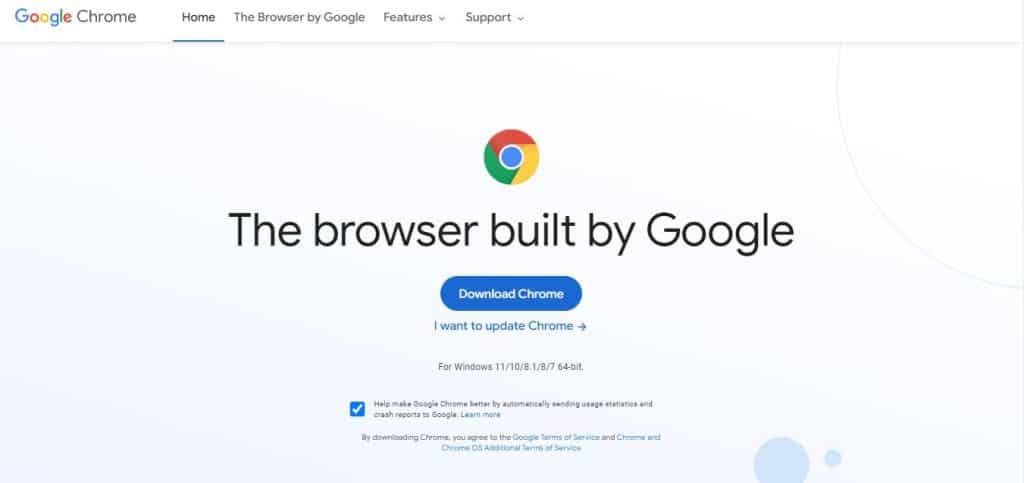Everyone has their favorite browser to use daily. Although most browsers provide the same features, it's essential to consider that specific browser have more security and protection than other browsers. Thus, selecting one that is secure for your everyday use will safeguard you when surfing the internet.
A safe browser can ensure that your data is secure and ensure that anyone cannot monitor your online activities. Unfortunately, even though many popular browsers provide similar privacy and security options, they aren't all user-friendly.
We'll assist you in finding the most secure web browser that meets your requirements. We'll review some of the top six well-known browsers, in size from Chrome up to Tor.
Let's get started!
What Is the Most Secure Way to Use a Browser?
It's essential to know that most browsers do not provide the most private or secure experience right out of the box. As a user, you are the one to choose how to set up the security and privacy options your browser offers you.
As a default, most browsers keep track of which websites you visit, save cookies, and even request users to remember passwords. Websites may also have access to specific information about you, such as locations, capacity to display pop-ups, execute scripts, etc.
Secure browsers offer many ways to safeguard your data and ensure your privacy. A privacy-conscious web browsing experience can mean less comfort in many instances, something we'll talk about in the following section.
The Most Securing Browsers for 2022
Let's look at six of the most well-known safe browsers that you can utilize. Be aware that this list doesn't rank by security or privacy features. After you've gone through all, you'll have the ability to choose which one is the one that suits your requirements most.
- Chrome
- Safari
- Firefox
- Edge
- Brave
- Tor
1. Chrome

Using Chrome, you can:
- Request websites to not track your online activities;
- Block pop-ups and scripts;
- Block cookies either in whole or in part;
- Make sure you're able to turn off warnings if you're at a “dangerous” website or downloading a file that isn't safe;
- Receive notifications when your passwords are compromised;
- Set the permissions that websites are granted access to;
- Block certain websites.
Chrome also grants the option of using an anonymous mode that lets you browse the internet without saving cookies or history for every session. It is also frequently updated, and a large portion of that code has been made open-source.
While Chrome is safe based on your preferences but it's not the ideal browser for privacy. You must sign in to your Google account to utilize it. Also, Google keeps a large amount of your personal information regardless of whether it chooses to provide that information to other websites.
2. Safari
Concerning security, Safari includes a lot of security features that allow you to safeguard your data, which include:
- Avoiding the risk of loading dangerous sites;
- Intelligent Tracking Prevention (ITP) feature that limits the ability of advertisers' ability to track your browsing;
- Blocking all cookies;
- Stopping websites from taking advantage of caching in browsers by default;
- Offering the possibility of stopping pop-ups;
- Controlling permissions to websites;
- It gives you access to the privacy report, which tells you which trackers you will encounter on the internet.
It's also important to note that Apple as a business is making strides in the protection of privacy for users.
3. Firefox
- Tracker protection on the internet (with various degrees of protection);
- Reports on the websites that attempt to monitor your activities (divide into categories);
- The ability to opt-in to receive alerts on data breaches;
- You can opt-out from Firefox data collection;
- Controlling permissions for websites;
- Blocking pop-ups by default;
- Blocking dangerous downloads;
- All connections are required to load over HTTPS.
It's also important to mention that Firefox is an open-source program. This means that anyone (with the appropriate skills) can analyze the codebase and ensure that Firefox isn't collecting any data that it should not. Firefox is also updated regularly.
4. Edge
Edge is just a bit ahead compared Firefox concerning market shares; however, it is behind Chrome in terms of market share but behind Chrome and Safari. In terms of options, Edge offers a similar variety of security options, which include:
- Multiple levels of prevention tracking options;
- Information on trackers that block the web;
- Opportunity to choose the level of protection against tracking to be used in the browser's private mode;
- Precluding websites from determining the information you've saved your payment preferences;
- Protection against malicious websites and downloads of files.
Edge is also accused of gathering data from its users about privacy, just like Chrome and Safari. There is evidence to suggest Edge is less sensitive to privacy than other browsers because Edge also shares the hardware identification numbers with a third party.
5. Brave
Even though it has a small percentage of the market, Brave has been the most innovative browser to be launched in the last couple of years. It provides a variety of exciting features that other browsers can't include, such as its tightly linked advertisement platform and cryptocurrency.
Brave is much more active than other browsers when it comes to safety. Here are a few of the characteristics included in Brave:
- Blocking third-party advertisements by default;
- By default, tracking cannot be stopped;
- A built-in password manager;
- It is possible to prevent scripts and cookies;
- Private browsing works similarly like similar to the Tor browser (which we'll cover in the coming days);
- To force all connections to HTTPS.
It is important to remember that Brave is built on Chromium. This means that despite Brave's privacy settings, There are some questions regarding the shared data with Google's servers.
6. Tor
For you to get an understanding of the extent to which Tor ensures the privacy of your information, we'll look through some of its most important features:
- Enabling tracking by default;
- Enabling scripts by default on all websites;
- You are not able to track your browsing history;
- Enforcing HTTPS use on all websites;
- The deletion of all cookies after every session, by default.
These features also suggest that Tor isn't the ideal choice for daily use. For instance, certain websites do not allow Tor out relays, so you won't have the ability to access your accounts. Additionally, because the default browser blocks scripts, it can't render some websites correctly.
Conclusion
If you're anxious about security and privacy, the best choices include Tor, Firefox, and Brave. But Tor isn't particularly user-friendly for use in everyday life. This leaves Brave or Firefox. The decision will depend on whether you'd like to go with a browser-based on Chromium or a different one. In either case, you can't go wrong.
